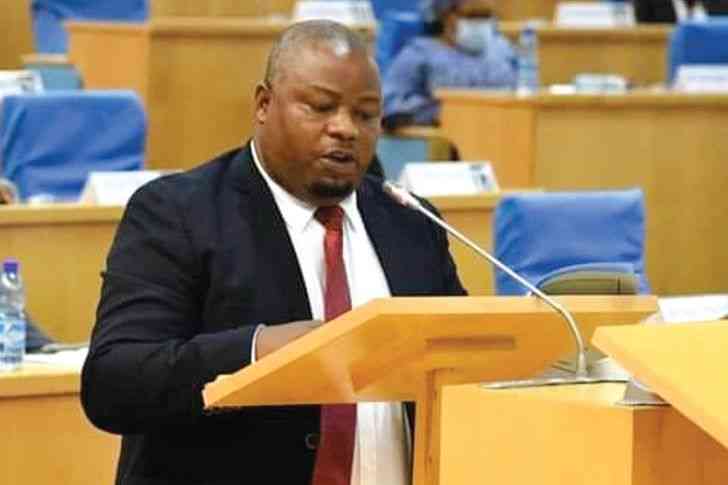Presidential age limit Bill resurfaces
Embattled Mulanje Central legislator Kondwani Nankhumwa is set to present a Private Member’s Bill proposing a constitutional amendment to make any person above 80 years of age ineligible to contest for the presidency.
The Business Committee of Parliament, which sets the agenda and comprises leaders of parties represented in Parliament and is chaired by the Speaker, is scheduled to meet tomorrow and will discuss whether to allow the Bill for debate, according to our sources at Parliament.

According to a memorandum of the proposed amendment The Nation has seen, the Bill seeks to amend Section 80 (6)(b) of the Constitution which provides for age eligibility of presidential candidates.
Reads in part the Bill: “Section 80 (6)(b) of the Constitution Act No 20 of 1994 of the laws of Malawi [hereinafter referred to as the ‘Constitution’] is amended by inserting the following new words ‘and is not more than eighty years old’ at the end of Section 80 (6)(b).”
This will be a second attempt after a similar move failed in 2018 when former Democratic Progressive Party (DPP) legislator for Nsanje South West Joseph Chidanti-Malunga had proposed that the maximum age for those aspiring for the presidency should be capped at 65.
Currently, Section 80(6) of the Constitution stipulates that a person is eligible for election as President or Vice-President if he or she is a citizen of Malawi by birth or descent and has attained the minimum age of 35, but there is no maximum age cap.
Nankhumwa argues that given the demands of the offices of the President, First Vice-President and/or Second Vice-President, there is need for energetic office holders who can be productive and be able to steer State and government business in the right direction.
Reads the memorandum to the proposed Bill: “It is my considered view; the framers of the Constitution might have inadvertently and or deliberately overlooked this aspect when drafting the foregoing provision.”
When contacted on the matter, Nankhumwa was non-committal and said Parliament was better- placed to speak.
Parliament spokesperson Ian Mwenye could also neither confirm nor deny the matter, asking that the Business Committee meet first.
He said: “Let’s wait for the Business Committee to meet. It’s only after that meeting that we will know which business is coming before the House.”
Reacting to the development, Malawi Law Society (MLS) president Patrick Mpaka said the Constitution in Section 87 addresses issues of capability of a President and Vice-President, as such, there is no constitutional gap that the proposed amendment seeks to address.
He said: “The justification and reason for the proposed Bill seem to be more of conjecture than empirically supported by evidence that at a certain age every person loses or gains capacity to effectively oversee the functions of the office of a President or Vice-President.
“Amending a Constitution is quite a serious matter and should ordinarily seek to advance and protect the public rather than the private interests of individual politicians. Proposed changes to the Constitution must be objective and have regard to the wishes of the people of Malawi generally.”
Mpaka said such a proposed change comes through a proper public Bill not a private member’s Bill, saying unless there are exceptional grounds, parliamentarians “must invariably limit their role to enacting rather than initiating laws”.
Private practice lawyer John-Gift Mwakhwawa also said reasons for the Bill are obviously personal.
He said: “We should not allow Parliament to pass legislation that targets individuals as would be the case in this scenario. The real issue is the age at which one can stand for office of President.”
Governance expert George Chaima said principally age limit Bill works against the tenets of democracy although it would make sense in a State where dictatorship leads.
In 2017, a report by the Special Law Commission on Electoral Reforms said it would be difficult to justify such an exclusion where a potential candidate was, for all relevant purposes, fit and able to execute the functions of an elected office.
Further, the Constitutional Review Report of 2007 also looked at the matter and the commission then considered that this was a political issue best left to the political process.





